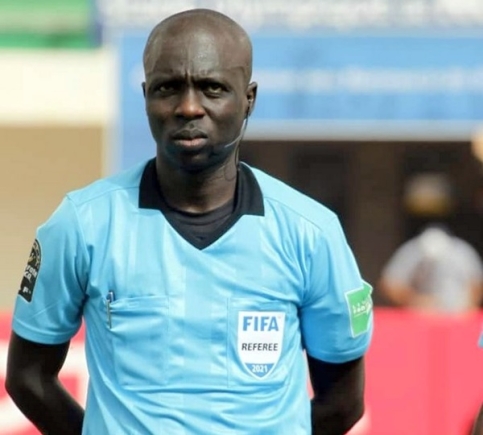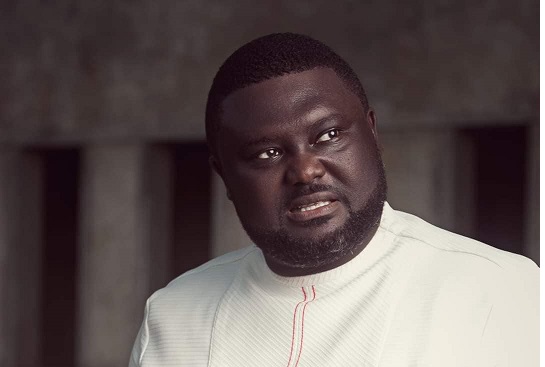On the day that North Korea test fired its first missile of the year, South Korean President Moon Jae-in was in the border town of Goseong, to attend a groundbreaking ceremony for a rail line that he hopes will one day reconnect the divided Korean peninsula.
Expressing concern that the January 5 test risked further destabilising inter-Korean ties, Moon stressed that his government would not give up hope of resuming peace talks.
Only dialogue can “fundamentally overcome this situation”, the South Korean president said. “If both Koreas work together and build trust, peace would be achieved one day.”
Since taking office five years ago, Moon has made unprecedented efforts to engage North Korea’s Kim Jong Un. The pair met three times in 2018, pledging to declare the Korean War – which ended not with a peace treaty, but an armistice in 1953 – over by the end of the year.
But that bid, along with negotiations on dismantling Pyongyang’s nuclear arsenal and providing it relief from punishing global sanctions, stalled the following year, when a summit between Kim and former US President Donald Trump in the Vietnamese capital, Hanoi, broke down.
Kim has since rebuffed offers from Trump’s successor to resume talks without preconditions.

In recent months, Moon, who is due to leave office in May, has stepped up efforts to put the peace process back on track, lobbying the US and China – both involved in the Korean War – for their backing to formally declare the conflict over.
In a recent address to the United Nations General Assembly, Moon said if all the major parties involved in the conflict “proclaim an end to the War, I believe we can make irreversible progress in denuclearisation and usher in an era of complete peace”.
The proposal has the support of most of the South Korean public, but has divided experts. Some say it could help break the diplomatic impasse on the Korean peninsula, while others fear it could threaten South Korea’s security, including by undermining the country’s defence alliance with the United States.
‘Political, symbolic measure’
Supporters of an end-of-war declaration say it is only diplomacy that has so far helped reduce tensions on the Korean peninsula.
Christine Ahn, executive director of the advocacy group Women Cross DMZ, notes that the summits between the leaders of the US, South Korea and North Korea in 2018 and 2019 led to Kim imposing a moratorium on nuclear and long-range missile testing, the release of three detained Americans, the demining of portions of the Demilitarized Zone (DMZ) separating the two Koreas, as well as the reunion of separated families.
“It’s time to take the use of force off the table,” Ahn said, describing the proposed end-of-war declaration as a “political, symbolic measure” that can build confidence and create the momentum for a return to talks.
But to be effective, she says the declaration must be accompanied by “fundamental shifts in US policy as well as commitments by all sides to reduce hostilities”. This could include steps such as sanctions relief, scaling back the US and South Korea’s military exercises, as well as lifting the US’s travel ban on North Korea to allow family reunions.
Ahn says the signing of an end of war declaration will allow diplomats to “get to work, pick up where negotiations left off since Hanoi, and begin the process of setting timetables for disarmament”.
She adds that those who argue against such a declaration have offered no viable alternatives.
“Simply insisting that North Korea give in to US demands to denuclearise, and believing that more pressure-based tactics will achieve these goals when there is no evidence to the contrary, is not a viable solution,” she said.
The US is yet to confirm the extent of its support for Moon’s peace push, with National Security Adviser Jake Sullivan saying last October that Seoul and Washington “have somewhat different perspectives on the precise sequence or timing or conditions” of the proposed treaty.
Washington has made little comment on the proposal since, although South Korean Foreign Minister Chung Eui-yong said on December 29 that Seoul and Washington “have effectively reached an agreement on its draft text”.
The South Korean foreign ministry also said earlier that month that China is backing its initiative, quoting a top Chinese official as saying that Beijing believes such a move “will contribute to promoting peace and stability on the Korean peninsula”.
Diplomatic ruse?
North Korea’s response, however, has so far only been tepid.
Kim’s powerful sister, Kim Yo Jong, called the proposal “interesting and admirable” last year, but she said the conditions were not right because of Seoul’s “hostile” policies – a reference to economic sanctions and the annual US-South Korea military exercises that Pyongyang calls a rehearsal for invasion.
And Kim, in his new year’s speech this year, made no mention of the South Korean proposal.
Lee Sung-yoon, a North Korea expert at the Fletcher School at the Tufts University in the US, believes North Korea is only “feigning disinterest” as it has been pushing for an end-of-war declaration since the 1970s, when the US signed a peace accord to end the Vietnam War.
“North Korea has in mind the complete downgrading and withdrawal of US military support for South Korea in the long term. And the end of war declaration is a baby step, but a significant step headed in that direction,” he said.
There are currently some 28,500 US troops stationed in South Korea, and Moon’s government has said the end-of-war declaration will not affect the alliance between the two nations. It also says that the proposal will not mean “a legal, structural change in the current armistice regime”, including in the standing of the US-led UN Command (UNC), the multi-national military force that helped repel the North Korean invasion in 1953 and is now tasked with enforcing the armistice.
But Lee says an end-of-war declaration “would arguably render the UNC illegitimate and it would have to be dismantled”, while also raising questions on the Korean Peninsula and in the US on the need for stationing American troops in South Korea.
“The most attractive model for North Korea is the Paris Peace Accord of January 1973 that ended the Vietnam War and led to the US withdrawal from South Vietnam,” said Lee. “It was called a peace treaty, a peace accord, but there was war days later, and the North unified Vietnam, under a communist government in 1975.”
He added: “So all these pleasant-sounding, peaceful sounding agreements are only good if there is the will, on both sides or among all signatories to keep the peace. Sometimes it is a diplomatic canard, it is a ruse to achieve the exact opposite, gain control, and acquire territory by non-peaceful means.”
‘Long shot’
For all the South Korean proposal’s merits and risks, its fate remains uncertain.
Moon’s single five-year term will expire in less than five months, and the race for the presidency is shaping up to be a tight contest.
Lee Jae-myung, the candidate from Moon’s party, backs the plan, but his main opponent, Yoon Seok-yul has spoken out against it, saying an end-of-war declaration could weaken the UNC and undermine domestic support for US military presence in South Korea.
And despite Seoul’s claims of support from the US and China for the proposed declaration, experts say there is little clarity on the international front.
Bong Young-shik, research fellow at the Yonsei University Institute for North Korean Studies in Seoul, says the US and North Korea want different outcomes from an end-of-war declaration.
“For the US, a joint declaration is acceptable if it is going to lead to meaningful and substantial progress with regards to North Korea’s denuclearisation. But this declaration is not really closely connected with making progress on that front,” he said.
“And for North Korea, agreeing upon a joint declaration must lead to some substantial benefits. What North Korea wants the most is sanctions relief. But that is not something that the South Korean government can decide. So, unless there are guaranteed benefits, the North Korean government will not find that proposal attractive.
“This has been a long shot, a very long shot from the beginning.”
Source: aljazeera








